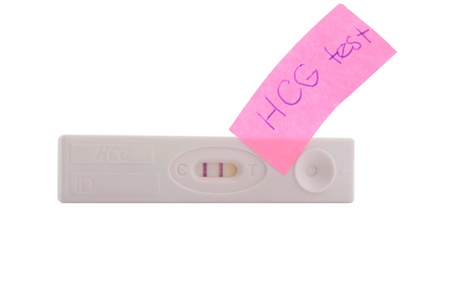What is Hyperemesis Gravidarum?
Hyperemesis Gravidarum is the exaggerated form of the most common early pregnancy sign that is morning sickness. It is characterized by very severe nausea and vomiting which leads to dehydration and even weight loss. 3% of the pregnant ladies are affected by it. The exact cause is not known but it is believed to be associated with the hormone levels in the body.
When Does Morning Sickness Begin?
Morning sickness is one of the first early pregnancy signs which makes its appearance around the fourth to sixth week after your pregnancy test comes positive and peaks around 10-12 weeks after which it begins to gradually decline. By week 20, you are almost free from the nausea and can resume all your normal activities. Your appetite also gets better. Pregnant women with hyperemesis experience these symptoms throughout their pregnancy and the severity is much more.
Causes of Hyperemesis Gravidarum
The exact cause is not known but it is known to be linked with hormonal levels of HCG- Human Chorionic Gonadotropin. The levels are known to be higher in ladies who experience hyperemesis. Also the morning sickness symptoms peak around the week 12 which is the time when the HCG hormone levels are highest in the body.
Some of the identified risk factors for hyperemesis are first pregnancy, multiple or twin pregnancy, similar complaint in the previous pregnancy, family history (genetics) or a history of an eating disorder.
Signs and Symptoms of Hyperemesis Gravidarum

The symptoms are similar to the signs of morning sickness but the severity is much more and the severe presentation leads to systemic complications:
- Severe nausea and vomiting
- Loss of appetite
- Weight loss amounting to 5% or more than your pre-pregnancy weight
- Dehydration which may cause ketosis
- Headaches
- Retching
- Fatigue
- Low blood pressure
- Dry and lusterless skin
- Nutritional deficiencies
- Metabolic disorders like thyrotoxicosis or ketoacidosis
- Emotional stress and anxiety
- Difficulty in doing routine activities
- Decreased urination
Diagnosis of Hyperemesis Gravidarum
The diagnosis is done mainly on the basis of the symptoms and by exclusion of few other diseases which have similar symptomatology. The differential diagnosis is appendicitis, cholecystitis, gastroenteritis, diabetic ketoacidosis, thyrotoxicosis, molar pregnancy etc.
The common investigations include hemogram, liver function tests, thyroid functions, blood levels of b-HCG, ultrasound tor rule our molar pregnancy. The tests are done based on the disease that is suspected. The presence of associated symptoms will also help in reaching to a diagnosis.
Treatment of Hyperemesis Gravidarum

The line of treatment will depend on the severity of the symptoms and most of the cases can be managed medically. Only 5% of the cases need hospitalization. The following changes will be helpful.
- Lifestyle Modifications: In case of extreme morning sickness, have simple bland food and eat smaller meal portions rather than one large meal. Avoid having spicy and rich food. Drink cold fluids rather than warm ones. Have nutritionally rich soups, electrolyte drinks and protein shakes. The severe vomiting will leave your body deprived of the essential nutrients and minerals. Take your pre-natal supplements regularly. If you have electrolyte imbalance, the doctor may also advice you to take additional Vitamin B1 (Thiamine) supplements and oral re-hydrating fluids. Have lemon and ginger tea with crackers in the morning as they help to keep away the nausea. 1-1.5 gm of ginger per day in the form of candy, tea or lollipops are very effective nausea remedies. Avoid strong smelling foods that may trigger nausea. Use a mint wash early in the morning to keep away nausea. Keep yourself relaxed as stress can trigger the symptoms like nausea and vomiting.
- Medications: For severe morning nausea, doctors will prescribe anti-emetics and antacids. Their safety during pregnancy is a concern that you should discuss with your doctor in advance. They are effective in symptomatic management of the symptoms of morning sickness.
- Intravenous fluids: If the vomiting is very severe then to replenish the water loss, IV fluids need to be administered. Vitamin B6 is also effective in treating extreme nausea.
- Alternative medicine: Acupuncture and homeopathy have some effective treatments for the severe nausea and vomiting.
Complications of Hyperemesis Gravidarum
In pregnant women if the hyperemesis is not treated properly, it can lead to complications like anemia, malnutrition, pulmonary embolism, deep vein thrombosis and metabolic imbalances in the body.
In infants the effects are mainly due to the nutritional deficiency occurring in the mother. Low birth weight and small length for full date babies are some of the complications that are commonly seen if the mothers with hyperemesis gain less than 7 kg throughout their entire pregnancy.

